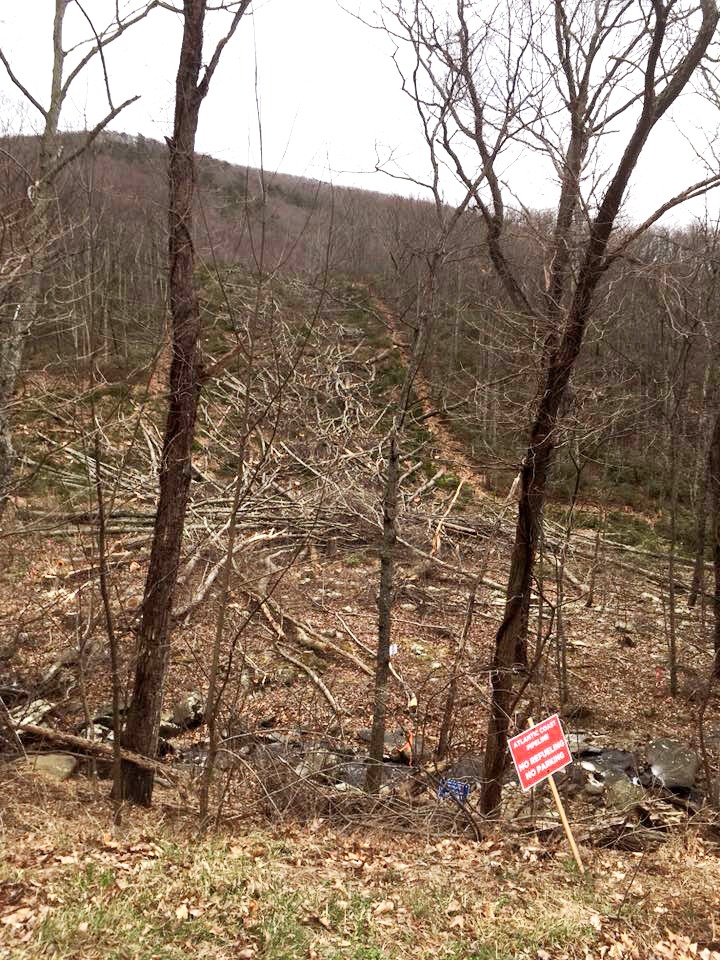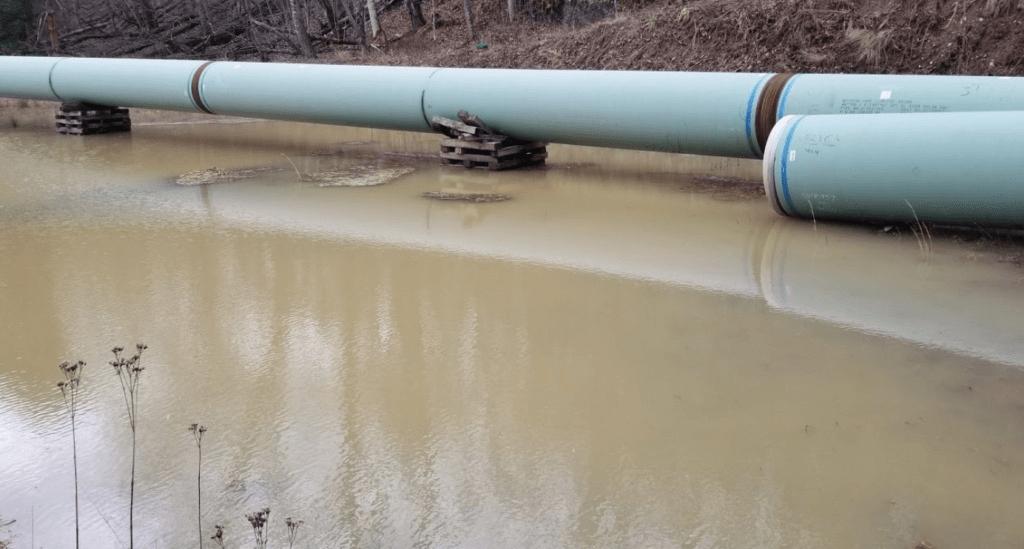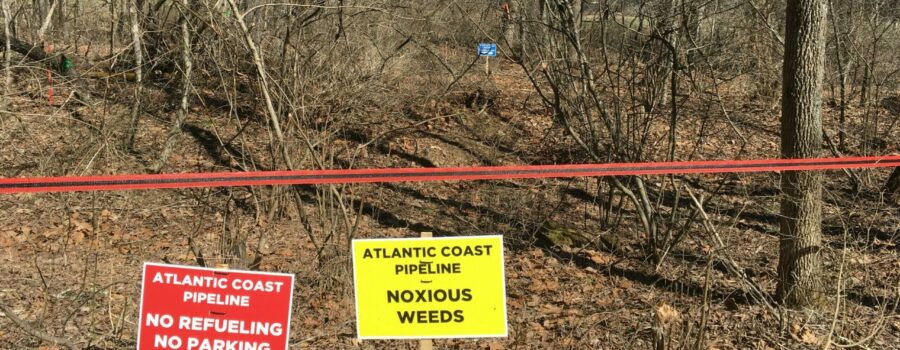Although it has been more than a year since the plug was pulled on the disastrous Atlantic Coast Pipeline (ACP), much work remains in order to make the communities along the 600 miles of the natural gas pipeline route whole again. About 30 miles of actual pipe was buried in West Virginia and many more miles of cut timber remain on the ground along the route. Invasive plants have entered clear-cut areas, cultural resource restoration on places like the stone walls in Augusta County remains unfinished, aquatic resources have been damaged, and easements have yet to be returned to landowners.
The environmental harm caused by partial construction…has proven entirely unnecessary now that the projects have been cancelled…

Timber cleared and then left on the ground along the ACP route.
In September, the Southern Environmental Law Center (SELC), acting on behalf of the Alliance and fourteen other groups, filed comments to the Federal Energy Regulatory Commission (FERC) regarding the ACP’s Draft Supplemental Environmental Impact Statement (EIS) for Restoration. “While we appreciate FERC’s careful review of the restoration plans…we highlight several shortcomings in FERC’s draft supplemental EIS and urge FERC to make the revisions described in these comments…” noted SELC in its 17-page comment letter.
“The environmental harm caused by partial construction…has proven entirely unnecessary now that the projects have been cancelled,” the letter concluded, noting that it is critical that the disturbed land and water resources are properly restored in consultation with individual landowners who have borne the greatest burden during the last seven years.
The Alliance will continue to work for a fair and complete restoration of the pipeline route, and will pass on any new information and updates.
Every year, during the Virginia General Assembly, the Alliance advocates for better protections for water quality in state regulations on pipeline construction to ensure the destruction caused by projects like the Mountain Valley Pipeline (MVP) are stopped forever. The MVP is a natural gas pipeline spanning over 300 miles from northwestern West Virginia to southern Virginia. Pictured below is MVP construction along Craig Creek in Montgomery County, VA.
Photo courtesy Mountain Valley Watch.


